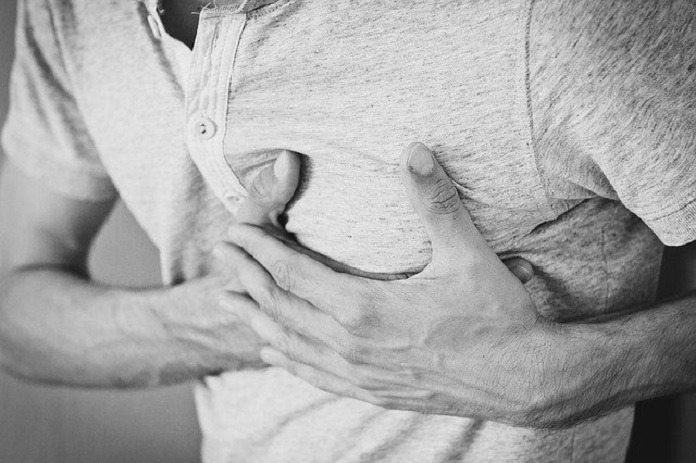Consuming cannabis products doesn’t have the same effects on the respiratory system as smoking them – but are edibles bad for your heart?
Cannabis, which is derived from the hemp plant, is widely known for its psychoactive and anti-nausea properties.
The active ingredient in cannabis that is associated with these effects is delta-9-tetrahydrocannabinol (THC).
Cannabis and synthetic cannabinoids, which are chemicals that mimic the structure of THC, can be prescribed to treat a variety of conditions, including chemotherapy-induced nausea and vomiting, chronic pain, and appetite loss.1
A growing number of governments are legalizing the use of medical and recreational cannabis, and in turn, more research is being done on the potential risks, benefits, and medicinal uses of cannabis.
Smoking cannabis versus consuming cannabis edibles
Cannabis is available in a variety of forms; two of these include inhaling cannabis smoke, and consuming edible products or baked goods containing cannabis.
Smoking cannabis may be associated with respiratory side effects because inhaling any smoke can be difficult on the lungs.2
Some research suggests that smoking cannabis may be associated with some adverse cardiovascular effects, although more research is needed to confirm these findings.3,4,5
Consuming edible cannabis products does not have the same effects on the respiratory system as smoking cannabis; however, there is minimal research on whether edibles can impact the cardiovascular system.
This has been indicated as a possibility.
For example, one case study of a 70-year-old man with coronary artery disease described his myocardial infarction, or heart attack, shortly after consuming a cannabis-infused lollipop.6
The patient consumed more than three-quarters of a 90-mg marijuana lollipop.
The patient described experiencing fearful hallucinations and called a family member to take him to an emergency room. He also reported crushing chest pain, sweating, and shaking.
The patient was treated for a heart attack with an anticoagulant, antiplatelet, and aspirin.
Cannabinoids and the cardiovascular system
Cannabinoids, such as THC, cannabinol (CBN), and cannabidiol (CBD), found in the cannabis plant, bind to endocannabinoid receptors in the body.7 These receptors are found all throughout the body, and as a result, cannabis can have a variety of effects on individuals.
More specifically, according to some new case studies and research, cannabinoids including THC may influence the cardiovascular system itself and could potentially be associated with increased blood pressure, heart rate, and an increased risk of adverse cardiovascular events.7
Can edibles increase heart rate?
Although the exact effects of edible cannabis are not well-studied compared to inhaled cannabis smoke, some research shows that activation of the endocannabinoid receptors may be associated with increased blood pressure and an increase in heart rate.8
However, other research shows that activation of certain cannabinoid receptors may be associated with decreased blood pressure and heart rate, and the current evidence is fairly inconclusive.9
More research is needed to determine whether cannabinoids can increase blood pressure and heart rate as well as determine whether these effects are specific to certain methods of cannabis ingestion.
Are edibles bad for your heart?
Although some evidence suggests that smoking cannabis may be associated with adverse side effects and cardiovascular changes, there is currently no consensus on whether or not cannabinoids such as THC and CBD are bad for the cardiovascular system.
More research is needed to determine the potential impacts of cannabis and cannabis edibles on the cardiovascular system.
References
- National Academies of Sciences, Engineering, and Medicine; Health and Medicine Division; Board on Population Health and Public Health Practice; Committee on the Health Effects of Marijuana: An Evidence Review and Research Agenda. The Health Effects of Cannabis and Cannabinoids: The Current State of Evidence and Recommendations for Research. Washington (DC): National Academies Press (US); 2017 Jan 12. 4, Therapeutic Effects of Cannabis and Cannabinoids. Available from: https://www.ncbi.nlm.nih.gov/books/NBK425767/
- Mack, A., Joy, J. (2000). Marijuana as Medicine? The Science Beyond the Controversy. Washington (DC): National Academies Press (US); 3, HOW HARMFUL IS MARIJUANA? Available from https://www.ncbi.nlm.nih.gov/books/NBK224396/
- Thomas, G., Kloner, R.A., Rezkalla, S. (2014). Adverse cardiovascular, cerebrovascular, and peripheral vascular effects of marijuana inhalation: what cardiologists need to know. Am J Cardiol 113(1): 187-190. Doi: 10.1016/j.amjcard.2013.09.042.
- Mittleman, M.A., Lewis, R.A., Maclure, M., et al (2001). Triggering myocardial infarction by marijuana. Circulation 103(23): 2805-2809. Doi: 10.1161/01.cir.103.23.2805
- Subramaniam, V.K., Menezes, A.R., DeSchutter, A., et al (2019). The cardiovascular effects of marijuana: are the potential adverse effects worth the high? Mo Med 116(2): 146-153. PMID: 31040502.
- Saunders, A., Stevenson, R.S. (2019). Marijuana lollipop-induced myocardial infarction. Case Report 35(2): 229. Doi: 10.1016/j.cjca.2018.11.033
- DeFilippis, E.M., Bajaj, N.S., Singh, A., et al (2020). Marijuana use in patients with cardiovascular disease: current knowledge and gaps. J Am Coll Cardiol 75(3): 320-332. Doi: 10.1016/j.jacc.2019.11.025
- Latif, Z., Garg, N. (2020). The impact of marijuana on the cardiovascular system: a review of the most common cardiovascular events associated with marijuana use. J Clin Med 9(6): 1925. Doi: 10.3390/jcm9061925
- Hapsula, D., Clark, M.A. (2020). Cannabinoid receptors: an update on cell signalling, pathophysiological roles and therapeutic opportunities in neurological, cardiovascular, and inflammatory diseases. Int J Mol Sci 21(20): 7693. Doi: 10.3390/ijms21207693
- Image by Pexels from Pixabay
Relevant topics that may be of interest:



